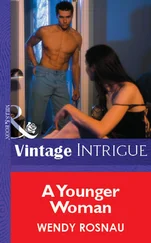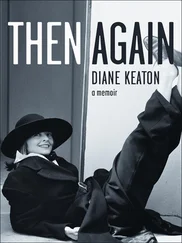And yet, after the shouting, my father had himself to thank for my war of independence, and I thank him for it, too. When I was barely nine, and our bloodline had been mercilessly cauterised in the fascist camps of Europe, he used to take me to lectures at Cooper Union where lefties and crypto-anarchists still dared hold forth. At the end of the fiery screeds discussion was thrown open to the floor and my father glowed with pride when I stood up on a chair to squeal precocious questions at the speakers: from whom does an unenlightened, uneducated proletariat learn the precepts of self-government? How can killing people ever stop people from killing people? Is Russian a Western language? Suddenly and only now, recollecting his pride, his sorrow, his carpentry and his singing voice, I realise to what degree I trusted my father, more than I have trusted anyone. I trusted him enough to show him all my anger. And he, staunch in his love, was soon afraid: for me.
Intellectual parent-bashing was a relatively new sport in the 1950s, a kind of emotional lacrosse, played almost exclusively by girls. I was an enthusiastic amateur who never achieved the thrust and style of, say, my room-mate, Marjorie, or any other of the proto-analysands at my college. Those chicks blamed their daddies for crimes too subtle even for my imagining. But Marjorie herself, in spite of the coaching of a Park Avenue shrink, never attempted serious mama-bashing, a sophisticated permutation of the game. Blaming mama rose to a competitive level only after the daughters and granddaughters of my generation were liberated to know that our own sex could be just as bullying, cruel, egotistical, possessive, venal and even more judgemental than men. No parent can ever get it just right or ever will. So what do you think about that, young one, squinting into the dawn for your first sight of land? Parents fuck us up from the moment we are born, it’s in the nature of the beast: they are bigger than we are, they are older – our parents have us. You too, in your time, for all the love in the world will get it not just right. Hey, pay attention! This is you I’m talking about. It is you I am talking to. You’d like to tell me to mind my own business. I am. And we must be growing very old indeed to talk to ourself so shamelessly. Senility never lacks for company.
‘1954: Land! This morning I saw land! Several rocks, beautiful, beautiful rocks, and an island called Wight that was once a hideout for pirates, and a big, proud, lonely lighthouse. Evelyn joined me and we watched the rocks slip by. English rocks! Pointed white rocks! We waved to skinny soldiers on a troopship behind us. English soldiers! Skinny English soldiers! Evelyn said they looked more worried than pleased to see us. I told her they’ve had a lot more to worry about recently than we have in the States. I agree, though, they did not look half as pleased at the sight of us as the Italian stewards did every time they sauntered past while we were splashing around the little swimming pool on deck, that’s for sure! And here we are! Here we are! And the formalities: my first ever formalities! The first stamp in my passport! My heart is jumping! The docks and countryside look neat, trimmed, pretty, planned, charming. The people too, perhaps? My God! They’re English and in their own land. Not in a black-and-white movie on television! The English in England, at last! Through Customs. The officials are gentle and nice. The trains! The people! Pale and small! Everyone not on this train is riding a bike. No doubt there will be cars when we get to London proper. Proper London! Headline on a newspaper: CANDID ON THE DUCHESS OF WINDSOR. Outside a sign: “Entry: frontal parking”. “Mind the gap”! Mind the gap! I thought of the Wife of Bath and her lecherous teeth! But what does it mean? So many people look like Alec Guinness!’
Alec Guinness, yet! Where would a girl have been in those days without exclamation marks! The pages of the notebook are slit in places by the shrieking lead of my pencil! Old excitement is contagious; it was those noisy exclamation marks that made me decide one dull day only last week to go back to my European landfall. The Needles! The Isle of Wight! To see them again! From the other side and half a century later, to take a look at my first glimpse of Europe, and with luck to stumble into a glitch of time where the ghost of my ship is forever slipping into port so from the cliffs above I can look down and see the ghost of myself dancing on the deck. Would I know myself as I was then? What I did not know then, had never been told (for my own good) and could never allow anyone to tell me, what I can hear and admit only from the desiccation of age, and what is patently evident in the ‘photograph of bearer’ of my first passport, is that I was really quite beautiful. My face, a classic oval, showed fine cheekbones and a clear, balanced, starry gaze. As I recall, this old body wasn’t all that bad either, toned by an energetic childhood, lots of swimming, rowing, hiking, as well as endless games of badminton in a homicidal version my brother and I invented that depended more on endurance than style. Had I known myself then to be good-looking, would it have made a great difference? Certainly, I would have expected more good things to come my way for free. Beautiful women are raised to expect a lot for nothing and to require very little of themselves, as nothing much more than beauty is required of them by others. Caretakers of the gift, vestal virgins, they soon learn to avoid hard travelling that makes squints, and hard work that makes wrinkles, and unguarded passion that makes shadows.
My first passport was not valid for travel to Albania, Bulgaria, China, Czhechoslovakia (correct spelling of the day), Hungary, Poland, Rumania or what was still the Union of Soviet Socialist Republics. I could not visit Egypt, Israel, Jordan and Syria, nor any portion of Korea or Viet-nam (hyphenated as it was then) under Communist control. Cuba, on the other hand, was hunky-dory. For my photo on page 4, and probably on the day of landing in England, I would have worn the usual dark-blue nylon trench coat and white turtleneck pullover probably over blue jeans as usual. The suitcase in my cabin was full of similar costumes suitable to the star of one of the classic romances of that time: the long-haired brunette of alien origin, fast-moving, intellectual, a little dangerous, no time for wimps. Incidentally, the brunette rarely got the man back then; in American movies she walked alone out of the last reel. Also, we American girls packed enough boxes of newfangled Tampax to see us through lest the Europeans hadn’t caught up with American know-how. Those of us who were not yet convinced tampons did not compromise the maidenhead and were too timid to ask for sanitary napkins in foreign languages had to cram a bulk of sanitary napkins into their fake-leather suitcases. Whether a girl of my generation styled herself after Juliette Greco or June Allyson, each of us was the star, looking for her co-star, and at the bottom of her chest packed hopefully lay the evangelical Hollywood-based tenet that one and only one true lover was out there, in search of her. And even though girls back then were shamelessly taught to tease and lead men on, she and he – he and I – were bound to know each other on sight and without brokering or pre-arrangement to make each other deliriously happy for ever after: Ginger and Fred, Katie and Spence, Bacall and Bogart. Always with parental approval, of course. Never mind the heresy we saw every day in the family home, true love was the distaff faith of my generation. I too was a believer. I knew I would find one true love, my mate and heart’s twin. I was just as persuaded then I would end my life with a man whose mind and mine were one as I know now that I did not even come close. Even in my darkest days I never lapsed from the faith; I exhausted it.
Читать дальше
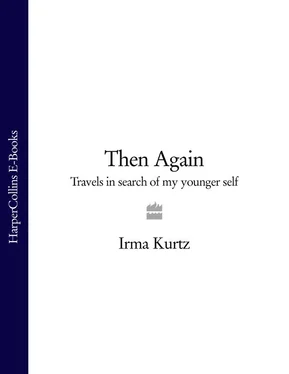




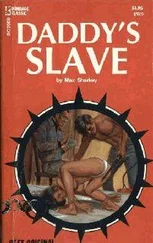
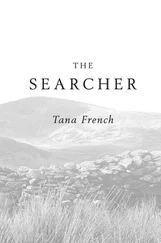
![Marcel Proust - In Search of Lost Time [volumes 1 to 7]](/books/579170/marcel-proust-in-search-of-lost-time-volumes-1-to-thumb.webp)
